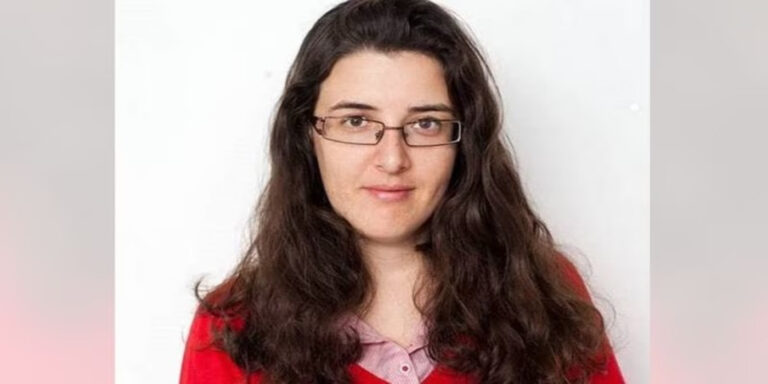An Israeli-Russian researcher who went missing in Iraq in March is being held captive by a Shia militia, says Israeli Prime Minister Benjamin Netanyahu.
Elizabeth Tsurkov, a PhD student at Princeton University in the United States, was conducting research in Baghdad when she was kidnapped.
“We hold Iraq responsible for her safety and well-being,” Mr Netanyahu’s office said.
Ms Tsurkov is being held by Kataib Hezbollah, according to Israel.
It did not specify what the group’s demands were.
Kataib Hezbollah (Brigades of the Party of God) is a powerful Iraqi Shia militia that gets financial and military support from Iran. The US has designated the group as a terrorist organisation since 2009.
Israel said the matter was being handled by “relevant parties… out of concern” for Ms Tsurkov’s “security and well-being”.
Iraq and Israel do not share diplomatic relations. Last year, Iraq’s parliament passed a law that criminalises any attempt to normalise ties with Israel, which it has never recognised.
Ms Tsurkov’s family said in a statement that they hold “the Iraqi government as directly responsible for her safety”, the Washington Post reported.
Ms Tsurkov entered Iraq on her Russian passport, Mr Netanyahu’s office said.
The New Lines Institute for Strategy and Policy, a Washington-based think tank where Ms Tsurkov is a fellow, said she last contacted them in March and that they later learnt from sources of her kidnap by a “pro-Iranian militia”.
“Our first instinct was to shout about her disappearance on the internet, in the media and on these pages,” the institute said in a statement in its magazine, adding that it decided not to do so because of her family’s wishes and in the hope of a quick resolution.
According to Ms Tsurkov’s website, her research focuses on the Levant – a historical term that refers to a large geographical region including present-day Israel, Syria and other areas – and “the Syrian uprising and civil war”.
New Lines said Ms Tsurkov’s situation was complicated by that fact that she was “an outspoken critic” of the three countries that may be involved in negotiations for her release: Israel, Iran and Russia.
“All of us feel that the United States needs to be involved in some way in helping [Ms Tsurkov],” it said, pointing to her involvement with New Lines and Princeton.
In a statement posted on Twitter, Princeton said: “We are deeply concerned for her safety and well-being, and we are eager for her to be able to rejoin her family and resume her studies.”
The US, Russia, Iran and Iraq have not officially commented yet.
Source : BBC News


